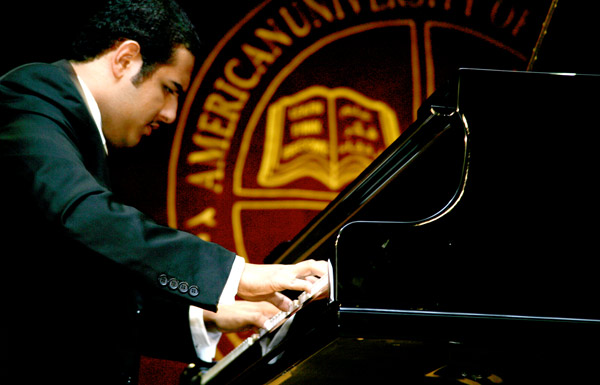Education in Kuwait: Report on Higher Education in Kuwait
Learning for Life: Kuwait might not be at the top of the usual MBA Business School rankings, but the northern Gulf state does have institutions of higher education which are highly regarded in the region.

Kuwait might not be at the top of the usual MBA Business School rankings, but the northern Gulf state does have institutions of higher education which are highly regarded in the region. “We are not spending as much as the Gulf countries have spent, especially the Emirates and Qatar, but our government is spending enough to have the human capital that they need for the development of the country,” said Abdullah Abdul Mohsen Al Sharhan, the Chairman of the Australian College of Kuwait or ACK.
“I think the importance of higher education was recognized earlier in Kuwait than it may have been in some parts of the region, and that came as a result of the relatively early development of the oil industry in Kuwait.”
When we met Mr. Al Sharhan for an interview, he did not hesitate to identify the challenges in the Kuwait’s education sector: “Kuwait has a 25 year plan for education, but the execution of this education plan is slower than we would like it to be. At school, pupils should have knowledge of language, whether it is Arabic or English, and mathematics when they graduate, since all higher education institutions demand those subjects today.”
However, Al Sharhan does not blame the politicians for these deficits. “No, the government is very much interested in improving education, but we need to be more focused. High school graduates should be prepared for tertiary education, and higher education needs to be more focused on what is needed for the development of the country.”
How did “learning for life” develop in Kuwait? Dr. Winfred Thompson, President of the American University of Kuwait, known as AUK, gave Marcopolis a free lecture on the Kuwait’s history in education. “I think the importance of higher education was recognized earlier in Kuwait than it may have been in some parts of the region, and that came as a result of the relatively early development of the oil industry in Kuwait,” he said.
Despite the fact that many American expatriates live and work in Dubai, Dr. Thompson does not want to see his institution of higher education as an isolated learning camp. “Three quarters of our students are Kuwaiti nationals. We compete with the other institutions of higher education in Kuwait and we benefit from government scholarship programs that support Kuwaiti nationals who attend the AUK. We’re reasonably comfortable with, and proud of, our competitive position in this society.”
Nevertheless, the American University of Kuwait cherishes co-operations with universities abroad. Dr. Winfried Thompson: “We have a relationship with Dartmouth College in New Hampshire in the United States. You may be aware that Dartmouth College is one of the Ivy League schools – one of the top ten higher education institutions in the United States.”

Marcopolis was eager to learn how the ACK and AUK tackle the aforementioned challenges and provide better tools of wisdom for future generations. ACK Chairman Al Sharhan: “What is unique about us is that we have project-based learning. Knowing that the high school graduates love to work with each other, you don’t overwhelm them with theories, you give them some theory and then they have to work together on projects. We have found this to be great motivation.”
The AUK is not only open to students but also to talented teachers. Dr. Thompson: “Beyond the physical facilities and the location, my greatest hope and ambition for the institution is to improve the quality of the programs. Fundamentally, that means two things: to recruit faculty members with the best possible credentials to the institution, and to compete in the market for students, attracting the very best students that we can and providing them with a diverse education.”The American institution AUK has a different approach. “Keep in mind that we are exclusively an undergraduate institution, and primarily a teaching institution rather than a research institution. We do, however, try to support the scholarship and research efforts of our faculty members, and that has been one of the projects where there has been collaboration between Dartmouth and the AUK,” Dr. Thompson explained, adding that “there is a centre in Dartmouth that focuses on cyber security, and one of our exchange programs has involved cooperation with that cyber security institute at Dartmouth; both our students and faculty members participate as fellows there.”
For Thompson, there are also hurdles to tackle as an American citizen living in Kuwait: “Probably the biggest issue in a professional sense is that the faculty members have fewer opportunities for collaboration and professional development than they would have if they were in major metropolitan or academic centers in the West.”
Last but not least, there is the question of money. A good higher education has its price. “One of the challenges that all the institutions in Kuwait face is that the tuition standards are not set by the institution, but by the Private Universities Council, so we don’t have the same flexibility that most private institutions in the West would have in organizing their own tuition based on competitive factors,” Dr. Thompson said.
One of the major challenge for the education sector in Kuwait is demographics. Economist Intelligence Unit (EIU) estimates the 1.1 mn strong Kuwaiti population to grow at an average 3% over the next 3 years.
Meaning that for the foreseeable future, there will be large numbers of young people coming into an educational system that has not yet been geared up to prepare sufficiently for that increase in student population. Bader Al-Humaidhi, former minister of finance argues that in the next ten years, Kuwait will have 350,000 Kuwaitis seeking jobs. If no jobs are found for those people, there will be sever social problems in the future.
Kuwait University, the largest publicly owned university in Kuwait, is undergoing a massive expansion. In addition to that number of private universtities such as American University of Kuwait and Australian College of Kuwait has sprunged up as a response for the growth in the number of students entering the university age.